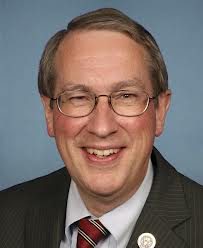6/11/2015
This month may spark the beginning of the end for the “tough on crime” congressional strategy among the perpetually campaigning members of the House of Representatives. The House Judiciary committee announced on Wednesday that it will form a panel to address reforms in the criminal justice system. The panel will be led by committee chairman, Bob Goodlatte (R-VA) and senior committee Democrat John Conyers (MI), and is expected to last for several months. In a joint statement the pair said, “The goal of the committee’s initiative is to produce strong, bipartisan legislation so that the criminal justice system better reflects core American values and works for America.” The announcement comes on the heels of one of the most turbulent 12-month periods in history regarding the criminal justice system, as tensions between minorities and law enforcement are extremely high due to incidents in Ferguson, MO, Cleveland, South Carolina, Oklahoma, Atlantic City, Milwaukee, New York, and most recently, in McKinney, Texas. It also follows a very candid off-topic commentary earlier this spring by Supreme Court Justices Anthony Kennedy and Stephen Breyer, in which Kennedy called the criminal justice system “broken.” Beginning with a June 25th listening session, the panel will be looking at issues on a piece-by-piece basis, exploring possible changes to sentencing guidelines, policing strategies, criminal procedure, and prison conditions.

Photo courtesy of the U.S. House of Representatives
In addition to the hot-button issue of police tactics, especially while interacting with minorities, the committee will attempt to tackle another highly-contested issue, mandatory minimum sentencing for non-violent drug offenders. As more states push to legalize marijuana, the disparity between states with tough sentencing guidelines for such offenders, and those who have relaxed the drug laws has created what appears to be a fundamentally imbalanced sentencing policy. As lawmakers, especially in the South, conducted successful campaigns presenting its candidate as tough on crime, the trend has led to harsher treatment of offenders, especially non-violent offenders judging by the numbers. A large portion of these said offenders being minorities as well, helping to fuel the tensions. Presidential candidate and libertarian enigma, Senator Rand Paul (R-KY), has also championed sentencing reform and has vowed to make it a major part of his platform if elected. While many in congress as well as the Justice Department support the reform, some prosecutors disagree with the blanket elimination of mandatory minimum requirements because the threat of such often helps low-level offenders give information about more serious offenders. Mike Riggs, however, spokesperson for the advocacy group, Families Against Mandatory Minimums, says “Mandatory minimums don’t work as advertised and the time to fix them is now.”
The Judiciary committee attempted a series of reforms in the last session, but to little success. The continued wave of high-profile incidents, however, has likely increased the prospects of reform. The recent turbulence in relations between law enforcement and the public has led several states to undergo their own measures regardless of what takes place in the Capitol. In Massachusetts, for example, the state’s top judge and a panel of six district attorneys debated a bill on Tuesday that would repeal mandatory minimum sentences for drug crimes. Supreme Judicial Court Chief Justice Ralph D. Gants, argued that these requirements disproportionately affect minorities and as he stated, “The drug dealer and his girlfriend who helps him package the drugs, the drug kingpin and the courier, the dealer who sells drugs to support his drug habit, and the dealer who sells to get rich may all be charged with the same crime. But they do not deserve the same sentence. And a judge free to sentence would not give them the same sentence.” Meanwhile, even in Texas, a state known for its harsh justice system, a bipartisan coalition spent much of the past legislative session passing a series of reform bills, although critics note that the state still leads the nation in executions, incarceration rates, and DNA-proven wrongful convictions. The coalition should continue into the next legislative session, however, and support among the legislators is increasing even amongst formidable opposition. These states only exemplify efforts occurring nationwide to create a more sensible criminal justice system. It will likely take much more time and continued political will to perpetuate these efforts, but it is becoming more and more evident that the trend is turning in favor of systematic reform.
Sources:
Boston Globe – David Scharfenberg
Dallas Morning News – Editorial
The Hill – Julian Hattem
Reuters – Julie Edwards


Join the conversation!